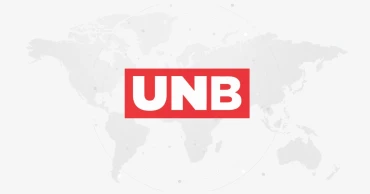economic development
Security cooperation does not refer to any strategic alliance: Shahriar Alam
Bangladesh's State Minister for Foreign Affairs Md Shahriar Alam on Wednesday (May 31, 2023) said security cooperation does not refer to any strategic alliance.
He, however, said they have probably slowed down some of the major purchase plans due to current economic situation, which will continue until further improvement of the economic situation.
"We do not want any war. But if the independence of Bangladesh is hurt, if the sovereignty is hurt, we will need tools to counter it," Shahriar said, adding that the government is focusing on further economic development.
He was speaking at an interactive session titled "Bangladesh at the Crossroads" held in a hotel in Dhaka.
Read more: Shahriar hopes US taking good note of BNP’s threat over election
The Daily Ittefaq organised the event where its Publisher and Executive Director Tareen Hossain delivered welcome remarks.
The State Minister said any defence agreement with any country does not mean that Bangladesh will get involved in war against any country.
"We have to procure necessary equipment to defend our country. We have Forces Goal 2030," he said.
The country's economic well-being is now the biggest priority, Shahriar said.
Read more: President Erdogan and PM Hasina vow to take Dhaka-Ankara ties to new height
"We are under no security threats," he said, adding that of course there is always the risk of extremism and Bangladesh will prevent it.
Shahriar said Bangladesh has some strategic plans as part of Forces Goal 2030 and it will have to wait for some more time to be completed.
Member of Parliamentary Standing Committee on Foreign Affairs Nahim Razzaq, diplomats from foreign missions stationed in Dhaka and journalists were present.
Read more: Nothing to share yet regarding China’s GDI, says Shahriar Alam
2 years ago
It is high time to work together on more projects, investment areas: Chinese Envoy
Chinese Ambassador to Bangladesh Yao Wen on Sunday said it is high time to work together to have more projects and investment from China overcoming the common challenges ahead.
"We find that there is a great potential to work together on high level visits and economic development," he told reporters at the Ministry of Foreign Affairs.
The Ambassador said China can do a lot and the two countries can work together for a better future.
“That is something China can do together to overcome common challenges faced by the two countries,” Ambassador Wen said, referring to the challenges of Covid-19 and also problems that emerged amid the situation in Ukraine.
Referring to Prime Minister Sheikh Hasina’s vision for 2041, the Chinese envoy said Bangladesh is now stepping into Smart Bangladesh from Digital Bangladesh and assured of his country’s support to that end.
Also Read: Gate of Dhaka-Beijing cooperation opens wider: Ambassador Wen
“I am confident that during my tenure I can work together with Bangladesh. China can do a lot. We can support each other. We can work together for the better future of our bilateral relationship,” he said.
Responding to a question on Rohingya repatriation, Ambassador Wen said they have a common objective with Bangladesh regarding repatriation of Rohingyas to their homeland.
He recognised Bangladesh's "sacrifice" in hosting the huge number of Rohingyas and assured of playing its role for their repatriation.
“We discussed the issue. You pay a lot. You suffered a lot. You sacrificed a lot. We have the common objective (repatriation),”said Ambassador Wen.
Bangladesh is hosting over 1.1 million Rohingyas in Cox’s Bazar and Bhasan Char and not a single Rohingya has been repatriated over the last six years.
Earlier, the Chinese Ambassador had separate meetings with State Minister for Foreign Affairs Md Shahriar Alam and Foreign Secretary Masud Bin Momen and discussed the Rohingya issues apart from other bilateral issues.
“We discussed ways to expand bilateral ties,” said the Ambassador.
3 years ago
US envoy Haas praises Bangladesh’s development, eyes stronger future partnership
US Ambassador to Bangladesh Peter Haas on Thursday said Bangladesh’s economic development over the last fifty years has been remarkable, and the United States has been a proud partner in that transformation.
"We look forward to working with Bangladesh over the next fifty years and beyond," he said.
The US Ambassador was delivering opening remarks at the Indo-Pacific Business Forum Infrastructure Panel titled “Mobilising Infrastructure Investment in Bangladesh and the Indo-Pacific.”
For the past fifty years, Haas said, the United States has partnered with the governments and the people of Bangladesh by providing over $8 billion to tackle issues like public health, education, energy, environment, food security, natural disasters, and more.
"We’re also working with the government through technical assistance programs to create more efficient logistics systems and unleash private investment in areas like clean energy, ports, and railways," said the US Ambassador.
In Bangladesh, as in other low and middle-income countries across the region, infrastructure is critical to driving inclusive and sustainable development.
Infrastructure connects workers to good jobs; allows businesses to grow and thrive, and creates opportunities for all segments of the society, including underserved communities.
"But delivering high-quality infrastructure takes more than just financial investment. It also requires working to support the necessary institutional and policy frameworks, regulatory environment, and human capacity to structure projects to attract private investment," said the Ambassador.
Read more: US envoy meets Momen, shares displeasure over embarrassment
It requires strong engineering, environmental, social, governance, and labor standards to ensure positive impact, he said.
Infrastructure comes in many forms and sizes, from the large-scale energy systems that power inclusive economies, to the local healthcare networks that contribute to global health security, to the cellular towers and undersea cables that move our data and enable a seamless, open worldwide exchange of information.
Meeting infrastructure needs across the Indo-Pacific requires a wide range of public and private financing options.
"No one country can go it alone. That’s why in June 2022, President Biden announced the United States aims to mobilise an additional $200 billion in investment as part of the Partnership for Global Infrastructure Investment," said the US envoy.
The United States has always been a strong supporter of development finance through the multilateral system, Haas said.
Investments from companies like Chevron, GE, and Excelerate create good jobs for Bangladeshi communities and help provide reliable power supply to the Bangladeshi people, he said.
U.S. companies are also working to expand high-speed internet access to communities across Bangladesh, said the US envoy.
For instance, U.S. company SubCom will build the next undersea communications cable from the Bangladesh Submarine Cable Company, he said.
Read more: US Ambassador visits residence of the coordinator of ‘Mayer Dak’ in city
"Innovative products like SpaceX’s Starlink could also help provide reliable high-speed satellite internet access to the most remote areas in Bangladesh and across the Indo-Pacific, he said.
These technologies can help support Bangladesh’s vast digital user base and expand Bangladesh’s digital economy, said the US envoy.
The United States and Japan are committed to working together to foster sustainable and inclusive growth in Bangladesh and across the Indo-Pacific.
The US Embassy co-hosted two panels for this year’s Indo-Pacific Business Forum with the Embassy of Japan in Bangladesh featuring Ambassador Haas, Japanese Ambassador to Bangladesh Iwama Kiminori, Economic Relations Division (ERD) Secretary Sharifa Khan.
Panelists discussed how to ensure infrastructure investment benefits bring positive impact across society, and how connecting major corporations with women-owned businesses can foster women’s economic empowerment.
3 years ago
Friendly conditions to be created for Bangladeshi immigrants in Portugal: Francisco Andre
Secretary of State (State Minister) for Foreign Affairs & Cooperation of Portugal Dr. Francisco Andre has assured of his personal intervention to create positive conditions for Bangladeshi immigrants to work and stay in Portugal.
He commended the Bangladeshi expatriate community residing in Portugal as “respected, well integrated community contributing significantly to the Portuguese society.”
State Minister for Foreign Affairs Md. Shahriar Alam had a bilateral meeting with the Secretary of State over a luncheon hosted by the Portuguese side in Lisbon on Monday and discussed the issues of mutual interest.
Also read:Bangladesh number 1 recipient of COVID-19 vaccines under COVAX: UNICEF
State Minister Alam apprised the Secretary of State about the sustained social and economic development of Bangladesh under the watch of Prime Minister Sheikh Hasina, said the Ministry of Foreign Affairs on Tuesday.
He raised the issue of the need of easing the existing visa complexities in the absence of a Portuguese resident Diplomatic Mission in Dhaka and offered every assistance for ensuring periodic consular services provided to Dhaka.
Bangladesh State Minister thanked his counterpart for the continued patronage extended to the Bangladeshi expatriates and praised Portugal for their immigrant friendly approaches.
He proposed the State Secretary to work together to chart an orderly and transparent pathway for Bangladeshi citizens to come and work in Portugal under an agreed framework.
The Portuguese State Secretary extended his invitation for Bangladesh to participate in the” Second UN Ocean Conference” to be held from June 27 to July 1.
Bangladesh State Minister informed of a possible attendance of a high-level delegation led by the Foreign Minister of Bangladesh.
The two leaders exchanged views on recent regional and global developments. They noted their convergences in their respective approaches to the current world order and reaffirmed their commitments to a stronger UN system and a rule-based world.
Bangladesh State Minister informed his counterpart that Bangladesh has always been the supporter of peace, territorial integrity, sovereignty and human rights protection, which reflects into our share of contribution in UN Peacekeeping Missions.
3 years ago
Bangladesh, UAE identify 12 fields to enhance cooperation
Bangladesh and the United Arab Emirates have specified 12 fields of bilateral cooperation at the 5th joint commission meeting between the two countries in Dhaka.
The meeting, held in Dhaka, was co-chaired by Finance Minister A H M Mustafa Kamal and UAE State Minister of Foreign Affairs and International Cooperation Ahmed Ali Al Sayegh. The ministers joined the meeting virtually, while senior officials of both sides attended it physically.
Read:Role of accounting profession important for fair spending: Mannan
The fields identified for bilateral cooperation are i) Bilateral Trade and Economic Development , ii) Labour, Employment and Consular Relation, iii) Civil Aviation, Tourism and Culture, iv) Investment Opportunities, v) Increased support of Abu Dhabi Fund for Development (ADFD), vi) Power, Energy and Mineral Resources, vii) Information and Communication Technology (ICT), viii) Education, Science and Technology, ix) Marine Environment Development, x) Agriculture, xi) Health Services & Health Education, and xii) Humanitarian & Charitable Areas.
The discussions were held in the spirit of understanding, friendship and mutual respect, meeting sources said.
Read:Bangladesh Bank announces 4 pc export subsidy on bicycle, cement sheet, and MS steel
The ministers virtually signed the agreed minutes of the meeting on behalf of their respective sides.
Both sides agreed to hold the sixth meeting of the Joint Commission in Abu Dhabi. The date of the next meeting will be fixed later.
4 years ago
Bangladesh to formulate integrated energy-power sector master plan with focus on 3E+S concept
Responding to the suggestions of energy experts, Bangladesh is finally moving towards formulating an integrated energy and power sector master plan with a focus on the "3E+S" concept.
“We’ll pursue the "3E+S" concept of ensuring "Energy Security," "Economic Efficiency," and "Environment" while focusing on "Safety," said the Japan International Cooperation Agency (JICA) in an official statement, adding, “In view of the need for a long-term low-carbon energy policy, we will support the formulation of the integrated energy and power master plan.”
Read: Bangladesh to extend deal with India on power import
According to official sources, Tokyo-based consulting firm Institute of Energy Economics, Japan (IEEJ), has started work following an agreement the Bangladesh government signed with JICA on March 15 this year in this regard.
Official sources said JICA will complete the formulation of the integrated energy and power master plan by December 2022 under a completion contract of a timeframe of 30 months.
JICA has been funding the entire project through its grant under a deal with the Ministry of Power, Energy and Mineral Resources (MPEMR).
It had provided financial and technical support for formulating all the previous power system master plans (PSMPs) until 2016.
According to official sources at the MPEMR, for decades, Bangladesh had prepared two separate master plans—one for the energy sector and another for power sector—where there had been many missing links and lack of coordination resulting in imbalance between the energy and power sector’s growth.
“But for the first time, we’re going to formulate an integrated master plan putting equal emphasis on development of both the sectors in order to support the current robust economic growth,” said Mohammad Hossain, Director General of Power Cell.
In the context of imbalanced growth in power and energy sectors in the last one and a half decades, the country’s energy experts have long been urging the government to formulate an integrated plan to bring coordination among the two.
In the last 12-13 years, the country’s power sector witnessed a robust growth with increased power generation from 4,500 MW to 21,000 MW while growth in the energy sector remained non-significant as a new discovery was not made for gas exploration nor low cost primary fuel was ensured.
Officials said Bangladesh has to now import a significant amount of primary fuel—specially, liquid petroleum, liquefied natural gas (LNG) and coal—to meet the demand of the power and industry sector.
Read: Hydropower projects in Nepal: Bangladesh’s investment decision after survey
4 years ago
Iranian President lauds Bangladesh's robust development
Newly-elected President of Iran Ayatollah Dr Seyyed Ebrahim Raisi has appreciated the robust economic development of Bangladesh under the leadership of Prime Minister Sheikh Hasina.
State Minister for Foreign Affairs Md Shahriar Alam had a meeting with President Raisi on Friday that lasted for 20 minutes.
Read:Indian sends 30 ambulances to Bangladesh
Earlier, Alam who led a three-member Bangladesh delegation, attended the swearing-in ceremony of the newly-elected Iranian president.
During the meeting, the president of Iran recalled his visit to Bangladesh 20 years back, particularly mentioned about his visit to Jashore.
President Raisi expressed his gratitude to President Abdul Hamid and Prime Minister Sheikh Hasina for congratulating him on his election as president.
4 years ago
WB lauds Bangladesh's economic growth despite downturn
The World Bank has acknowledged Bangladesh’s remarkable economic development and growth, and reassured the global lender's continued support for this country's prosperity.
Private Industry and Investment Adviser to the Prime Minister, Salman Fazlur Rahman, met with World Bank’s Managing Director (Operations) Axel van Trotsenburg and other high-ranking officials at its global headquarters in Washington DC recently.
Salman led the Bangladeshi delegation, which included Abdur Rouf Talukder, Senior Secretary, Finance Division, Ministry of Finance, Executive Chairman of Bangladesh Investment Development Authority (BIDA), Secretary, Ministry of Commerce, Secretary, Economic Relations Division, Ministry of Finance, and Chairman of the Securities and Exchange Commission.
Also read: WB to provide USD 300 mn for livelihood improvement in Bangladesh
In addition to Trotsenburg, the World Bank Group was also represented by John F. Gandolfo, IFC’s Vice President, Economics and Private Sector Development (acting) and Treasurer, and Mohammad Shafiul Alam, Bangladesh’s Alternate Executive Director to the global financial institution.
In the meeting with the World Bank’s MD, Adviser Salman highlighted Bangladesh’s unprecedented economic development under the leadership of Prime Minister Sheikh Hasina reiterating that the country's economy was on a solid footing.
In particular, he underscored Bangladesh’s economic performance and the GDP growth of 5.24% despite the pandemic-induced economic downturn. Salman recalled the continued financial assistance provided by the World Bank to Bangladesh and thanked the global lending body for its contribution.
He also highlighted the need to reduce procedural delay -- through bilateral discussions and close engagement -- in the disbursement of the loans sanctioned by the World Bank for Bangladesh to purchase Covid-19 vaccines on an emergency basis.
Also read: Manufacturing sector’s productivity crucial for Bangladesh to offset Covid impacts: WB
At a separate meeting, the Bangladesh delegation led by Adviser Rahman met with IFC’s South Asia Vice President and the World Bank’s acting South Asia Vice President.
Both sides agreed to accelerate cooperation in crucial areas, including Bangladesh’s reform efforts regarding ease of doing business, BIDA’s institutional capacity enhancement, and skills and human resources development.
4 years ago
Speakers highlight benefits of enhanced Dhaka-Delhi connectivity
Commerce Minister Tipu Munshi on Thursday said that and enhanced connectivity with India will help Bangladesh achieve its SDG targets faster along with economic development.
5 years ago
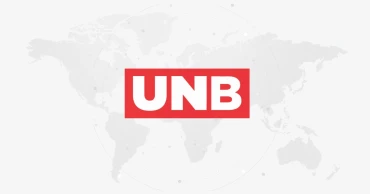
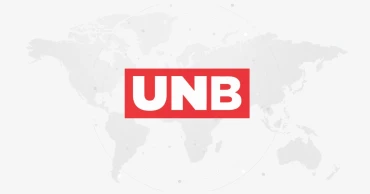
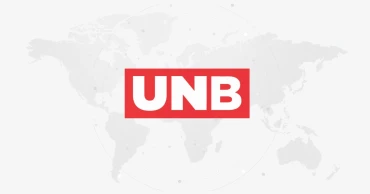

.jpg)
.jpg)
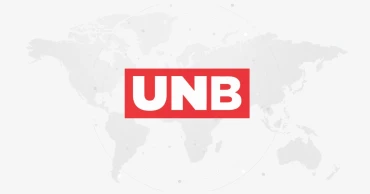
.jpg)
